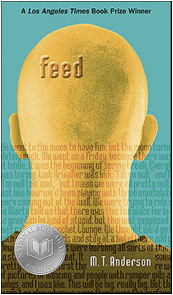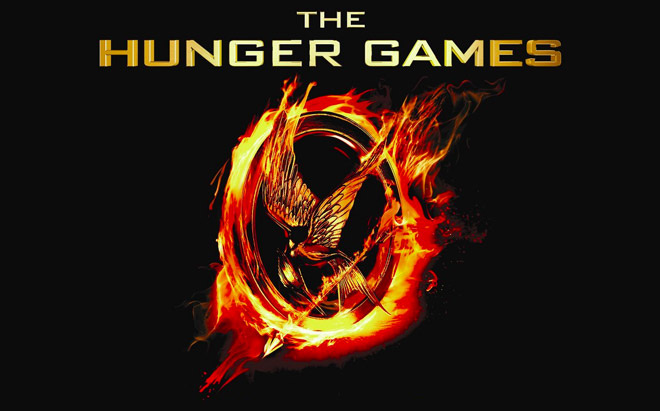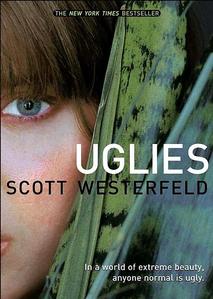Why dystopia?Utopian and dystopian studies comes from a deeply historical context whereby people of all walks of life began imagining possible worlds where political, economic, and social conditions were altered. In United States history, utopian novels that were published during the antebellum age (1820s and 1830s) espoused the possibility to re-imagining social order. Communities built by the Shakers and Oneidas lived out their utopian dreams. Dystopian literature, burgeoning during the late 20th century reflected an increase in fear about political and economic turmoil. Novels like 1984 and Brave New World emphasized the relationship between power, technology, individualism, and conformity. Resistance and reform had a very different face after the social movements in the 1960s and 1970s. Dystopian novels play with constructs of time, space, history, and geography. The worlds seem so much like our own or at least what our world can be. While many of the novels written in the Cold War era reflect fears about conformity, dystopian novels written in the early 21st century engage these topics a little differently. Surveillance and ideological repression look different in 2015 than it did at the height of the Cold War. The battle between capitalism, socialism, and communism has been subsumed by neoliberalism and globalization. One person standing up for what they believe triggered marches and protests that were televised around the country in the 1960s and now one Tweet or YouTube video goes viral where the world is now watching global affairs. YA dystopian novels are unique in that they center on the actions of youth as they participate in resistance against totalitarian leaders. Each novel's world is constructed on some kind of sameness or conformity. The hero's or heroines never quite feel like they fit in with the communities expectations and they often find ways of escape expectation. Rather than accepting societies norms, that main characters question their world and seek alternatives. But no dystopian novel is "perfect," Some might say that the genre is itself a tool of resistance whereby authors offer social criticisms of our own world. However, a deeper analysis could reveal that the novels only reinforce some of the underlying economic and social tensions that youth experience today.
I believe that history teachers can use dystopian novels to help students see history in action. Sometimes history curriculum seems boring or outdated. Despite what some might say about the literary quality of some young adult novels, I find that dystopian fiction provides a doorway to connecting our students to our content. The language and vocabulary is similar between the novels and history curriculum. We can engage students in discussions about the past AND in imagining the future by integrating fiction into our classrooms. Books vs. FilmsAfter taking a Film & Literature course in college, I stopped making broad assumptions and arguments about whether or not the book or the movie was better. Essentially, it is like comparing apples to oranges. Privileging one over the other de-values both as artistic representations and tools of storytelling. Are there times where I enjoy the book more than the film, yes. But there are also films that do an amazing job in adapting novels so that my enjoyment and appreciation grows and changes. We have to view media as separate because they each have different goals and achieve those goals using different tools. We can study films in a similar way that we study novels by questioning narrative structure, format, characterization, and themes. Novelists work with words whereas film makers use music, sounds, and color to tell a story. Questions to be asked of dystopia & history curriculumPower
Knowledge
Surveillance Culture
Codification & Discrimination
Post-Capitalism & Consumerism
Novel ideas
Dystopian shortcomingsMy final thoughts come just after seeing the final installment of the Hunger Games films that opened this weekend. After reading 20+ dystopian novels (marketed for adults and youth), I have been left with one question: what happens after the rebellion? Almost all of the novels focus on resistance efforts led by characters who do not agree with the government's actions. But what is missing is any notion of HOW TO REBUILD. People join resistance movements to fight for their rights. Totalitarian governments are deposed. Evil leaders are killed. But the books and films always end there. There is no transfer of power. There is no explanation for what kind of society is re-imagined. The heros and heroines go home and live their lives out of the spotlight.
This feels exactly like a traditional history classroom. We spend time studying events of the past and do little to institute changes that will make the world more equitable. We fail to act on our knowledge in creating a better world. I love reading dystopian fiction because I get to engage in imaginative worlds that challenge me to think about our own. But we can't stop at resisting. We must also engage in creating and imagining.
1 Comment
In the last few years, I have become more "connected" as an educator through the use of social media. I had been opposed to the use of Twitter, primarily because I had only seen it used by my students to distract themselves from class or homework. However, a colleague of mine explained how she used Twitter to connect with fellow educators in order to get new ideas and inspiration. I was wary of joining my first Twitter chat and just "lurked" for a while. Learning the language and trying to gather your thoughts in 140 characters was quite a challenge. It was through the exposure to some amazing educators, their tweets, and their blogs, that I decided writing my own blog would be an effective way of reflecting.
But what do I have to say? And if I say anything, will anyone actually listen? So many thoughts about schooling and education research fill my mind as I am completing my PhD in education. I just spent the last few hours coding some of my data, which are book club discussions about dystopian fiction and how youth explain their understanding of power, identity formation, and resistance. But this post is not about that. It's really about one question: Why did you enter a PhD program? Two years ago I sat at the CA chapter of the National Association for Multicultural Education (NAME) with my advisor and she asked this important question. I stared at her for what felt like a few dreadful minutes. Why? Who asks that? Actually, it's one of the most common questions I get. Well that and how much is it going to cost and what do you plan on doing after you are done? I looked at my professors, a woman who has inspired me to be a better educator and a better person. She pushes me to think about schooling as a process whereby teachers and students can make a different in the world. I didn't want to be wrong. I didn't want to give an answer that would make her seem like she was wasting her time. When I think back to that moment, I wonder how many time my own students feel this same way. I told her that I certainly wasn't in it for the money. She laughed. What I said was that I looked into PhD programs because I did not want to be a complacent teacher who did the same thing year in and year out until retirement. I too wanted to feel challenged by learning some about myself, about my students, and about education. Being in a doctoral program has been one of the most challenging and fulfilling processes. From day one, I was challenged to think about research, education, and teaching differently. Now I am not saying that every one should go out and get another degree; however, there is certainly a need for educators to continue honing their craft. If we don't ask questions or seek inspiration to make every day a new experience for ourselves, and most importantly, for our students, then we can't expect to see any change for our world. As I get closer to finishing my dissertation, the first thought I had was that I would no longer have access to academic journals. I never realized how much I love and revel in new scholarship. In fact, it wasn't until I became a doctoral student that I found my passion for presenting at conferences. The only way that education is going to change for the better is if teachers actively seek ways of being that change. Teacher conferences are my favorite. Participants show up to your session because they are interested in the topic. Sometimes a few walk about - but I do not take it personally. The subject wasn't what they wanted at that moment. Teachers give honest feedback. I learn more from the questions and comments I receive, which makes me a better presenter and helps me shape my ideas. So I take this foray into blogging for many reasons. First, I have never written so much in my life before starting a PhD; however, I learned that writing helps me crystallize my thoughts and forces me to organize my ideas. Second, I want to actively contribute to my field. Teachers have a lot to say about what they experience in the classroom and this is one platform upon which we can build networks of support. Finally, I want to challenge myself to actively reflect upon my teaching. A student recently interviewed me about being a teacher and one of her questions regarded what I liked about teaching. My initial response response was that every day is different and every day is on opportunity to learn. I want to take more time to think about those moments. |
Archives
January 2019
Categories
All
|
Proudly powered by Weebly




 RSS Feed
RSS Feed